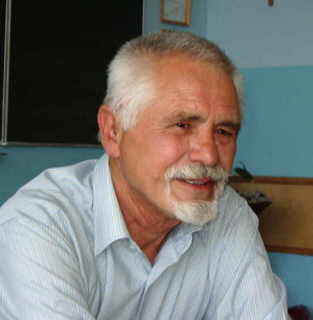 Tadeusz Kościuszko, rys. Adam Grabowsk
Tadeusz Kościuszko, rys. Adam Grabowsk
 Tożsamość, patria i jej administracja
Tożsamość, patria i jej administracja
Andrzej Koraszewski
Rodzimy się w przypadkowym czasie, w przypadkowym miejscu, w przypadkowej kulturze, w przypadkowej rodzinie. Patriotyzm to bycie dobrym sąsiadem. (Chrześcijanie nazywają to bliźnim, a tu pojęcie „sąsiada” jest rozciągliwe). Co to znaczy być dobrym sąsiadem? Patriotyzm łączy się ze słowem patria – ojczyzna. Rosyjscy anarchiści sądzili, że wszystko lepsze niż władza państwowa, mieli po temu uzasadnione powody. Odrzucali rzymską maksymę dura lex sed lex, w przekonaniu, że anarchia jest lepsza niż państwo i jego prawa, ponieważ to ich państwo dostarczyło dowodów, że traktuje poddanych jak bydło. Jakiś Polak pisze w Internecie, że PiS i Kaczyński są jak ci od gnoju, ale w garniturach. Ileż pogardy w tym „patriocie” dla ludzi, którzy od czwartej rano nie przewracają się na drugi bok w łóżku, nie siadają do komputera, żeby dowiedzieć się co słychać, tylko karmią krowy, szykują sprzęt przed wyjściem w pole. Jak potężna jest tradycja tej bezgranicznej pogardy dla tych „od gnoju”. Nie chcę takiego sąsiada, nie chcę takiego odrażającego patriotyzmu.
Patriotyzm to gotowość obrony nie tylko siebie, ale i sąsiadów, gotowość oddania swojego życia w obronie innych. Right or wrong, my country – mówią czasem Anglicy, chociaż te słowa (w innej kolejności), są słowami amerykańskiego bohatera. Są chwile, kiedy niezależnie od naszych podziałów, obrona wspólnoty jest ważniejsza od sporów o racje. Ale nasze spory nie są nieważnie i walka o sposób spierania się może być najważniejszym elementem tego, co nazwiemy patriotyzmem.
Państwo jest wspólnotą jego mieszkańców, tych od gnoju i tych w garniturach. Państwo dostarcza nam ochrony w zamian za lojalność. Co znaczy „państwo”, co znaczy „nam”, ochrona czego, przywileju niewolenia jednych przez drugich, czy bezpieczeństwa wszystkich?
John Kennedy powiedział: „nie pytaj co państwo może zrobić dla ciebie, zapytaj, co ty możesz zrobić dla państwa.” To ciekawy skrót myślowy, w sytuacji zagrożenia. Czasem to zagrożenie może być konsekwencją nadmiernie roszczeniowych postaw obywateli.
Kiedy król mówi „państwo to ja”, reagujemy oburzeniem, albo śmiechem. My jednak czasem mamy ochotę powiedzieć politykom: państwo to ja.
Oburzyła mnie niedawno moja ignorancja, dopiero na starość dowiedziałem się, dlaczego mówimy amerykańska administracja, a nie amerykański rząd. Jefferson i Adams przed objęciem urzędu prezydenta byli ambasadorami w Europie, Jeden przy dworze francuskim, drugi przy dworze brytyjskim. W Europie był władca i byli poddani, Ameryka miała być inna, miała być krajem, w którym nie ma poddanych. Idea obywatela była tu traktowana poważniej niż w innych miejscach. Postanowiono, że władza powinna być raczej administracją niż rządem.
Koncepcje państwa i koncepcje obywatela mogą mieć różne fundamenty. Pisał o tym niedawno na marginesie zbliżających się wyborów prezydenckich w USA pochodzący z Iranu dziennikarz amerykański Amir Taheri.
Taheri przypomina odmienną koncepcje państwa Platona i Arystotelesa.
„Platon, (przynajmniej w swoim opus magnum Państwo), przedstawia idealne społeczeństwo jako rządzone przez tych, którzy wiedzą najlepiej, z misją opieki nad ludnością od kołyski do grobu. Wszystko, co ludzie muszą zrobić, to przestrzegać zasad i cieszyć się dobrym życiem oferowanym przez rządzących filozofów.
Arystoteles natomiast skupia się na jednostce, która jest panem swojego losu, z wyjątkiem sytuacji, gdy ingerują bogowie.
Arystoteles jest ostrożny w stosunku do mas i dużych społeczeństw. W rzeczywistości martwi się, że miasto, które rozrośnie się do ponad 100 tysięcy mieszkańców, może mieć kłopoty.
Europejscy przybysze do Nowego Świata docierali tam w małych grupach, Byli pionierami w małych rolniczych osadach, działali jako niezależne jednostki, które łączą się tylko w sytuacjach kryzysowych, sami sobie tworzą swoje prawa pod nieobecność państwa. To był model arystotelesowski, lub jak kto woli anarchistyczny, daleki lub zgoła sprzeczny z platońską utopią. Fundamenty Ameryki tworzyli ci „od gnoju”.
Ponieważ reszta świata była bardziej platońska, w miarę rozwijania się i cementowania struktur państwowych również w Ameryce indywidualizm pionierów, z konieczności musiał zacząć konkurować z europejskim kolektywizmem.
Skromna w założeniach ojców założycieli administracja narodu imigrantów rozrastała się w związku z potrzebami obronnymi. Kolejne sytuacje kryzysowe wzmacniały władzę rządów federalnych i stanowych kosztem samorządu gminnego.
Amir Taheri pisze, że wojna secesyjna w USA pokazała konieczność kolektywnych działań na rzecz zachowania Unii, ale jednocześnie wykształciła kolektywistyczne nawyki, które nie zniknęły po zakończeniu stanu wyjątkowego. Pierwsza wojna światowa zmusiła do stworzenia ogromnej armii, co wymagało nowego spojrzenia na rolę władzy centralnej.
„Krach na giełdzie w 1929 r. zwiększył atrakcyjność kolektywistycznego działania w sytuacjach nadzwyczajnych niezwiązanych z wojskiem. New Deal prezydenta Franklina D. Roosevelta, zainspirowany ekonomią keynesowską, był pierwszym poważnym pokazem kolektywizmu w amerykańskiej polityce.”
Częściowo dzięki temu widocznemu sukcesowi – pisze dalej Taheri – udało się przełamać tamę mentalną, która oddzielała idee kolektywistyczne od amerykańskiej polityki poza sytuacjami kryzysowymi.
New Deal, wielka solidarnościowa operacja była zasadniczo różna od komunistycznej solidarności lansowanej przez ZSRR i solidarności społecznej lansowanej przez nazistów i faszystów. Otwierała się brama do „trzeciej drogi”, która (przynajmniej teoretycznie), nie atakowała ani prywatnej własności, ani wolnego rynku, prowadziła „tylko” do państwa opiekuńczego, w którym jednostce należy się pomoc ze strony dobrego i mądrego państwa.
Mimo istnienia niewielkiej partii komunistycznej, idee komunistyczne nie miały w Ameryce wielkiego powodzenia. Faszyści byli dość liczni, ale nie na tyle, aby wpływać na mentalność społeczeństwa jako całości. Protestancka etyka, uznająca za grzech brak zaradności, marniała pod ciosami państwowej dobroczynności z pieniędzy podatników.
„W polityce USA pod rządami prezydenta Lyndona B. Johnsona nastąpił gwałtowny zwrot w stronę kolektywizmu, czego wyrazem były takie elementy jak dyskryminacja pozytywna, komunitaryzm, feminizm i wczesne tendencje ekologiczne.”
W imponującym tempie rosły nakłady na opiekę społeczną i szeregi dworzan zajmujących się rozdzielnictwem wtórnie dzielonej części dochodu narodowego. Obywateli zmieniano w poddanych, oferując im możliwość ucieczki od zaradności i odpowiedzialności za los własny i los swoich dzieci.
Taheri pisze o Baracku Obamie, który w swojej autobiografii wyśmiewa podejrzenia, że może być „ukrytym socjalistą”, ale okazuje się piewcą kolektywizmu, „ducha kolektywnego, którego wszyscy pragniemy, poczucie więzi, które góruje nad naszymi różnicami”.
„Na przestrzeni dziesięcioleci tradycyjny amerykański kult jednostki jako bohatera stracił wiele ze swojej otoczki, zastąpiony nowym kultem ofiary, której należą się przeprosiny i zadośćuczynienie.” To nowa religia dworzan zajmujących się rozdzielnictwem i elit mówiących „państwo to my”, które powróciły do platońskiej idei państwa. Dziś plus minus połowa mieszkańców USA jest w ten lub inny sposób zależna od zasiłków i świadczeń.
Zdaniem amerykańskiego dziennikarza, kolektywistyczne myślenie wyparło pionierski, indywidualistyczny etos, co prawdopodobnie rozstrzygnie o wyniku zbliżających się wyborów.
Tymczasem my, mieszkańcy starego świata, nigdy nie otrząsnęliśmy się z feudalnych podziałów na plebs i obywateli, nigdy nie zaczęliśmy traktować idei demokracji, jako wspólnoty równych i odpowiedzialnych za swój los jednostek. Nie zapamiętałem nazwiska autora memu o tym, że ci z PiS-u różnią się od tych od gnoju tylko ubiorem. Nie było powodu, ponieważ ten pogląd doskonale odzwierciedla postawy tak wielu.
„Jesteśmy tym co jemy” przekonuje mnie inny internetowy mem. Jest w tym sporo prawdy, ale „jemy” nie tylko to, co nam podają na stół, od kołyski pożeramy strawę duchową wpychaną dousznie raz doocznie, przy pomocy obrazów i liter.
Zapomniany dziś znakomity pisarz Andrzej Bobkowski uciekł z powojennej Europy, szukając po drodze odpowiedzi na pytanie, co go w niej doprowadza do szewskiej pasji. Podczas swojej pierwszej wizyty w Stanach Zjednoczonych ze zdumieniem odkrył, że nie ma w mieszkańcach tego kraju plebejskości, ani nieustającej irytacji na plebejskość.
Przed drugą turą wyborów prezydenckich w Polsce w 2020 roku Zbigniew Boniek naraził się troszkę powtarzając głośno opinię „inteligentów”:
„Prezydent Polski dzisiaj może być wybrany głosami ludzi środowiska wiejskiego, głosami emerytów i ludzi z podstawowym wykształceniem”.
Przeprosił potem mówiąc: „Tak czasami bywa, jeśli emocje biorą górę nad mózgiem i racjonalnością. Ja przecież napisałem jedynie to, co przeczytałem w gazecie”.
Pewne odmiany patriotyzmu skłaniają do oikofobii. Głęboko siedząca platońska idea państwa przybiera postać opiekuna ludu, awangardy proletariatu, bojownika o społeczną sprawiedliwość, z tożsamością postępowca, chcącego zmienić wszystko, żeby nic się nie zmieniło.
Wielu wyraża dziś obawy, że amerykański eksperyment dobiega końca. Nas nie zaraził nigdy, a pomniki Tadeusza Kościuszki nie wpływają ani na naszą tożsamość, ani na nasz patriotyzm.
Na nasze spory, o to jak się spierać, Platon wydaje się wpływać silniej niż Arystoteles, Europa pozostała wierna tradycji i patrzy z nadzieją na Amerykę. Czuję się obywatelem świata, co może prowadzić do globalnej oikofobii.
 Andrzej Koraszewski – Publicysta i pisarz ekonomiczno-społeczny. Ur. 26 marca 1940 w Szymbarku, były dziennikarz BBC, wiceszef polskiej sekcji BBC, i publicysta paryskiej „Kultury”. Więcej w Wikipedii.
Andrzej Koraszewski – Publicysta i pisarz ekonomiczno-społeczny. Ur. 26 marca 1940 w Szymbarku, były dziennikarz BBC, wiceszef polskiej sekcji BBC, i publicysta paryskiej „Kultury”. Więcej w Wikipedii.
Zawartość publikowanych artykułów i materiałów nie reprezentuje poglądów ani opinii Reunion’68,
ani też webmastera Blogu Reunion’68, chyba ze jest to wyraźnie zaznaczone.
Twoje uwagi, linki, własne artykuły lub wiadomości prześlij na adres:
webmaster@reunion68.com





